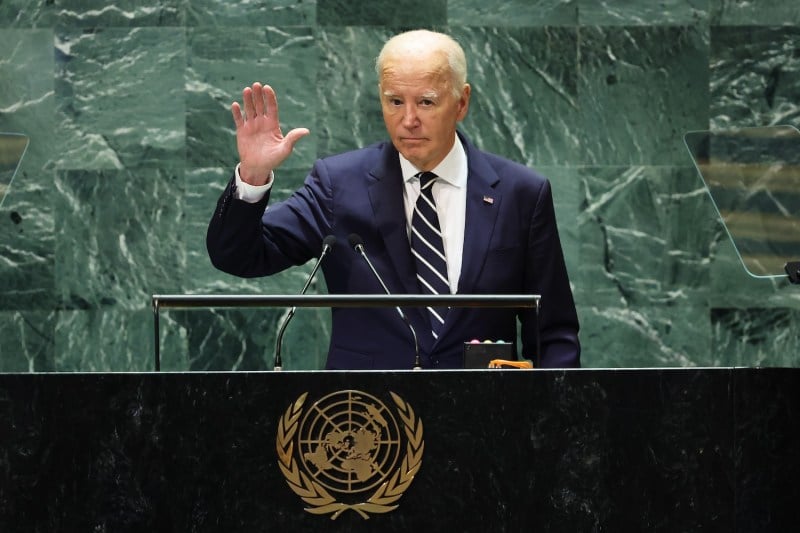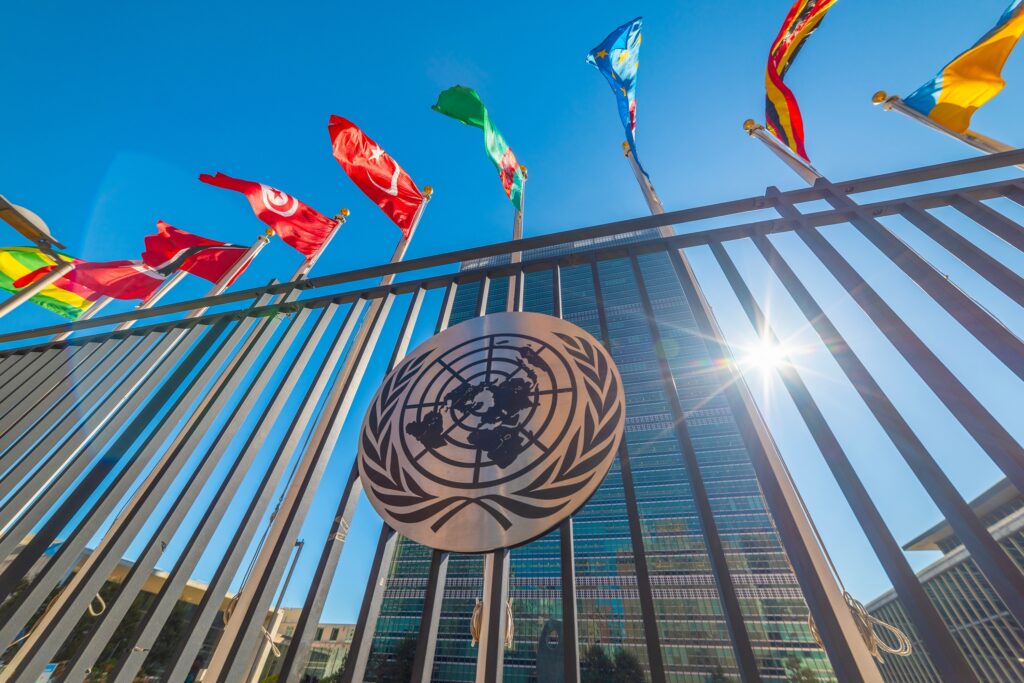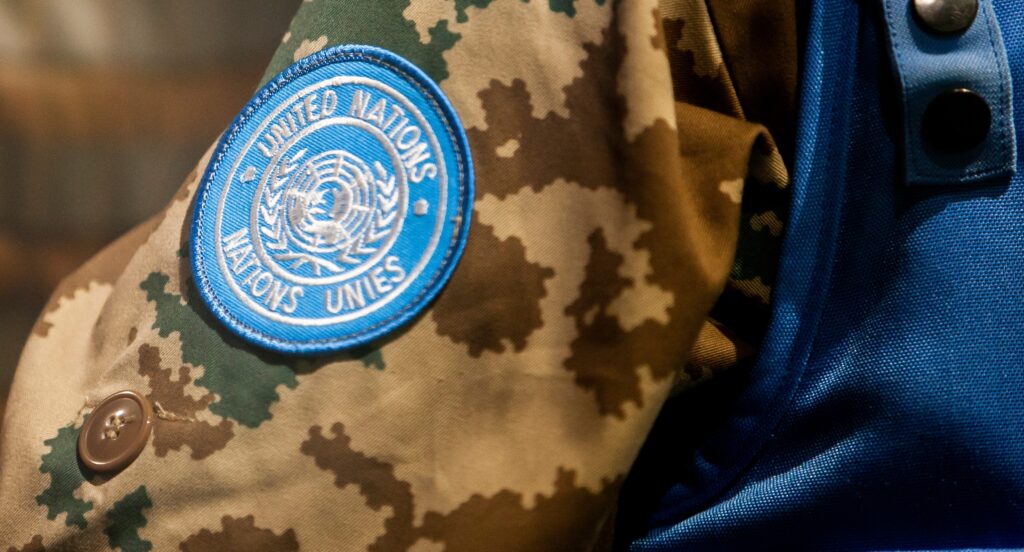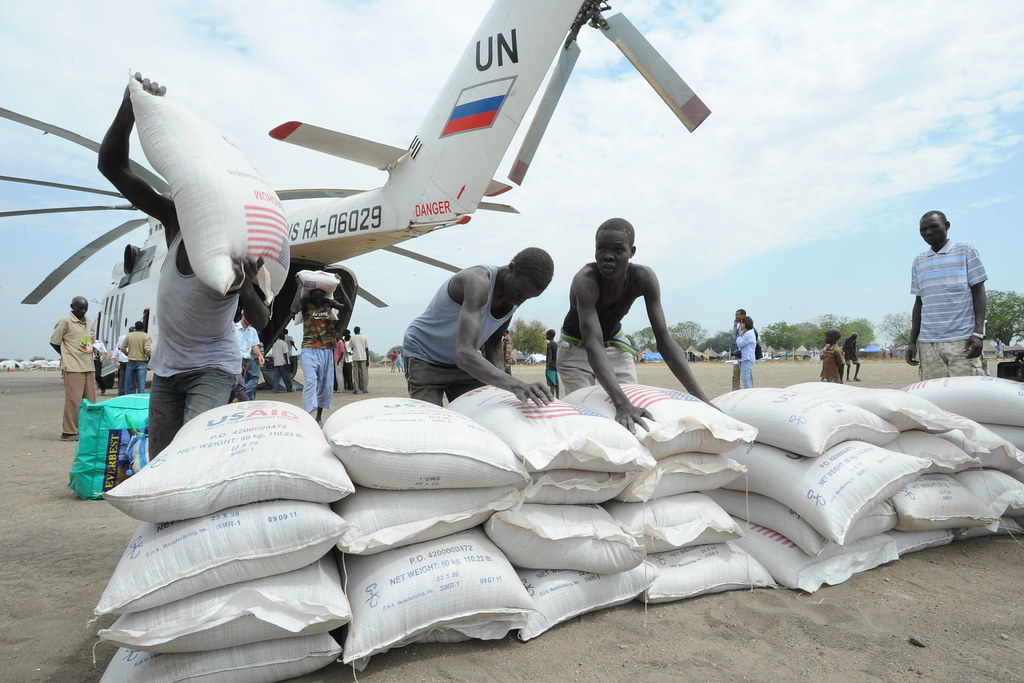It’s been a busy week in New York for the 79th anniversary of the UN General Assembly. As tradition dictates, the ceremonies were kicked off by Brazil, followed immediately by President Biden in what was his final address as leader of the free world to leaders in the world’s biggest arena. His speech mattered, heavily referencing the work of the U.S. at the UN in the preceding years. Here’s some of the UN context behind and between the President’s remarks.
President Joe Biden Addresses the 79th UN General Assembly
“Last year in Hanoi, I met with Vietnamese leadership, and we elevated our partnership to the highest level. It’s a testament to the resilience of the human spirit and the capacity for reconciliation that today the United States and Vietnam are partners and friends, and it’s proof that even from the horrors of war there is a way forward.”
Where the UN comes in: In 2023, the U.S. and Vietnam signed a Comprehensive Strategic Partnership, increasing collaboration in trade, diplomatic relations and the environment. The two countries also expanded coordination through the UN, with a shared commitment to denuclearizing North Korea, peace in Ukraine and counterterrorism efforts.
“In the 1990s, I worked to hold Milošević accountable for war crimes.”
Where the UN comes in: Following the breakdown of Yugoslavia and a series of ensuing conflicts, the International Criminal Court — the UN’s independent judicial body — established the International Criminal Tribunal for the former Yugoslavia (ICTY). The ICTY saw the prosecution of war criminals like Serbian leader Slobodan Milošević for their violation of the UN’s Genocide Convention. Pres. Biden’s mentioned of the ICC comes amid growing interest in (and opposition to) use of the ICC and ICJ to mediate and adjudicate war crimes.
“Each of us in this body has made a commitment to the principles of the UN Charter, to stand up against aggression. When Russia invaded Ukraine, we could have stood by and merely protested. But Vice President Harris and I understood that that was an assault on everything this institution is supposed to stand for.”
Where the UN comes in: Article 2 of the UN Charter states that UN member states must refrain from the “use of force against the territorial integrity or political independence of any state.” The UN Secretary-General has stated that Russia’s invasion of Ukraine is a violation of its territorial integrity and of the UN Charter since Russia’s invasion of Ukraine was not justified as an act of self-defense. This was reaffirmed by a General Assembly Resolution where 141 Member States called for Russia to withdraw all military forces from Ukrainian territories. In diplomatic communiques and major negotiated texts such as the Pact for the Future, mention of the phrase “territorial integrity” signals reference to Russia’s violation of this bedrock normative principle in Ukraine.
“We recently resumed cooperation with China to stop the flow of deadly synthetic narcotics. I appreciate the collaboration. It matters for the people in my country and many others around the world.”
Where the UN comes in: In Nov. 2023, the U.S. and China resumed cooperation to combat the flow of opioids into the U.S. As the “the main source for all fentanyl-related substances trafficked into the United States,” China’s cooperation with the U.S. is key to disrupting global illicit drug trade. Collaboration with China and other international partners like the UN Office on Drugs and Crime assist the U.S. in its attempts to curb American opioid deaths that stood at over 107,000 in 2023.
“On matters of conviction, the United States is unabashed, pushing back against unfair economic competition and against military coercion of other nations in — in the South China Sea, in maintaining peace and stability across the Taiwan Straits, in protecting our most advanced technologies so they cannot be used against us or any of our partners.”
Where the UN comes in: Since 1949, China has exerted a claim over Taiwan — an island that has independently governed itself for over 70 years. In 1979, the U.S. recognized Beijing, not Taipei, as the country’s capital, undermining Chinese claims to Taiwan and setting off regional tensions that continue today. Currently, these disputes have manifested as economic interests in areas like deep sea mining. Here, entities like the International Seabed Authority and the UN Convention on the Law of the Sea provide dispute mechanisms to ensure that these decades-old tensions are managed.
“At the same time, we’re going to continue to strengthen our network of alliances and partnerships across the Indo-Pacific. These partnerships are not against any nation. They are building blocks for a free, open, secure and peaceful Indo-Pacific.”
Where the UN comes in: Currently, one in four Pacific Islanders are likely to be living below their country’s basic-needs poverty line. In response to mounting need, USAID recently partnered with UN agencies and announced a commitment of $200 million for Ready-to-use Therapeutic Foods (RUTF). This aid will be distributed by the World Food Program in conjunction with UNICEF to Pacific Island communities in need.
“The United States has led the world in providing humanitarian aid to Sudan. And with our partners, we have led diplomatic talks to try to silence the guns and avert a wider famine. The world needs to stop arming the generals, to speak with one voice and tell them: Stop tearing your country apart. Stop blocking aid to the Sudanese people. End this war now.”
Where the UN comes in: Sudan is currently the world’s worst humanitarian crisis, with 26.6 million who are food insecure and 10.7 million displaced, culminating in the recent declaration of famine conditions throughout the country. Currently, warring parties are preventing the delivery of needed aid. In August, the U.S. organized a conference to bring remedy to the Sudanese people. While not achieving a full ceasefire, U.S. collaboration with the UN and other international partners secured the reopening of essential border crossings to increase the flow of aid.
“We’ve taken the most ambitious climate actions in history. We’ve moved to rejoin the Paris Agreement on day one. And today, my country is finally on track to cut emissions in half by 2030, on track to honor my pledge to quadruple climate financing to developing nations with $11 billion thus far this year.”
Where the UN comes in: The Paris Climate Agreement is a set of legally binding commitments made by 195 parties to reduce emissions and decrease the current rate of global temperature rise. Originally signing on in 2015, the U.S. withdrew from the agreement in 2017. At the beginning of his term in 2021, President Biden rejoined the agreement and recommitted the U.S. to reducing its greenhouse gas emissions.
“We’ve rejoined the World Health Organization and donated nearly 700 million doses of COVID vaccine to 117 countries. We must now move quickly to face mpox outbreak in Africa. We are prepared to commit $500 million to help African countries prevent and respond to mpox and to donate 1 million doses of mpox vaccine now. We call on our partners to match our pledge and make this a billion-dollar commitment to the people of Africa.”
Where the UN comes in: Following the African Center for Disease Control’s declaration, the World Health Organization (WHO) declared mpox as a global health emergency in August. With the presence of mpox in more than a dozen African countries, the WHO’s decision triggered an increase in global collaboration on vaccine production and delivery, a process that was further amplified by the WHO’s first-ever approval of an mpox vaccine.
“My UN ambassador just laid out our detailed vision to reflect today’s world, not yesterday’s. It’s time to move forward.”
Where the UN comes in: On Sept. 12, U.S. Ambassador to the UN Linda Thomas-Greenfield announced U.S. support for three key reforms to the UN Security Council: two permanent seats for African countries; a designated rotating seat for small island, developing states and engagement in negotiating reforms to the UN Charter through the General Assembly. These reforms are seen as essential steps in ensuring a more equitable, efficient Security Council that represents the world it seeks to protect.
“And the Security Council, like the UN itself, needs to get back to the job of making peace; of brokering deals to end wars and suffering; and to stop the spread of the most dangerous weapons; of stabilizing troubled regions from East Africa to Haiti, to Kenya-led mission that’s working alongside the Haitian people to turn the tide.”
Where the UN comes in: In Oct. 2023, the UN Security Council voted to launch a Kenyan-led multinational security support (MSS) mission in Haiti. Outside of the UN’s jurisdiction, the MSS will work to reestablish security in the country’s capital and build the capacity of local police to combat rising gang activity and instability. The U.S. has pledged $300 million in financial support for the mission and in June 2024, the first MSS soldiers arrived in Haiti.
“This year, we achieved the first-ever General Assembly resolution on AI to start developing global rules — global rules of the road. We also announced a Declaration on the Responsible Use of AI, joined by 60 countries in this chamber.”
Where the UN comes in: Last October, the Biden administration offered an Executive Order on “Safe, Secure and Trustworthy Artificial Intelligence” that formed the basis of the UN General Assembly’s first-ever AI resolution. This landmark resolution greatly informed the Global Digital Compact, just adopted at the Summit of the Future. These recommendations cover everything from efforts to protect privacy and close the digital gap, to innovation-friendly practices and strategies to disarm dangerous mis- and disinformation that threatens democracy and propels political propaganda.
“We saw it — that universal yearning for rights and freedom — in Venezuela, where millions cast their vote for change. It hasn’t been recognized, but it can’t be denied. The world knows the truth.”
Where the UN comes in: On July 28, Venezuela held a national election in which incumbent President Nicolás Maduro was declared the winner. This claim has been greatly contradicted by opposition reporting, UN independent expert observers and U.S. officials. Since the election, UN Human Rights bodies have described a ‘climate of fear’ in Venezuela as the Maduro government has violently repressed pro-democracy election protests and called for the arrest of pro-González advocates including the opposition candidate himself, forcing him into exile.
“We saw it in Uganda LBGT activists demanding safety and recognition of their common humanity.”
Where the UN comes in: The Ugandan Parliament voted to pass the Anti-Homosexuality Act in March 2023, drawing intense criticism from LGBTQ activists in Uganda and around the world. The U.S. and UN responses to the law being upheld have been greatly aligned, with the U.S. imposing visa restrictions for Ugandan officials repressing marginalized groups and widespread condemnations from UN human rights groups.




